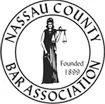What is the Exempt Income Protection Act (EIPA), and How Does it Protect Against Debt Collection?

Millions of Americans around the country are struggling with debt each year. The COVID-19 coronavirus pandemic has only made matters worse, causing a significant portion of the population to lose a chunk of their income, if not their jobs. New York has laws in place to ensure that people are not left destitute even if they owe significant debt. The Exempt Income Protection Act (EIPA) is one such protection measure. Continue reading to learn about the EIPA and how it protects consumers, and reach out to a seasoned Poughkeepsie bankruptcy lawyer to explore your options for debt relief.
Debt Collection Exemptions
Under federal and state laws, a certain amount of income is protected from efforts such as bank account freezes in the pursuit of private debt collection. In 2008, the New York state legislature realized that many creditors were skirting these protections and finding ways to freeze or levy funds that should have been protected from collection. To stop these illegal collection efforts, New York enacted the EIPA.
Under the EIPA, if a creditor attempts to freeze the account of a debtor, a certain amount of the funds will be left unfrozen to ensure that the debtor has sufficient funds to cover their basic needs. If the account contains certain federally-protected exempt benefits, the first $2,850 in that account is protected from freezing, and accounts with less than $2,850 cannot be frozen. These protected benefits include:
- Social Security
- Public assistance such as welfare
- Spousal and child support
- Veterans’ benefits
- Pensions
- SSI
- Unemployment insurance
- Workers’ compensation
- Retirement savings accounts (401k, IRA)
For all other accounts, the bank must keep free an amount to the depositor based on the minimum wage in the locale. In New York City, because the minimum wage is currently $15 an hour, the debtor’s first $3,600 in an account cannot be frozen. Creditors and debt collectors cannot freeze an account totaling less than $3,600. Additionally, each week an amount equal to 30 times the minimum wage per hour is protected. If you make less than 30 times the minimum hourly wage each week, or if your income is solely from social security or public assistance, then your income will be entirely exempt.
If you are struggling with debt in Poughkeepsie, Montgomery or surrounding areas, contact the knowledgeable and compassionate Hudson Valley bankruptcy lawyers at the Law Office of Taran M. Provost, PLLC for a free consultation on your case at 845-675-3243.



